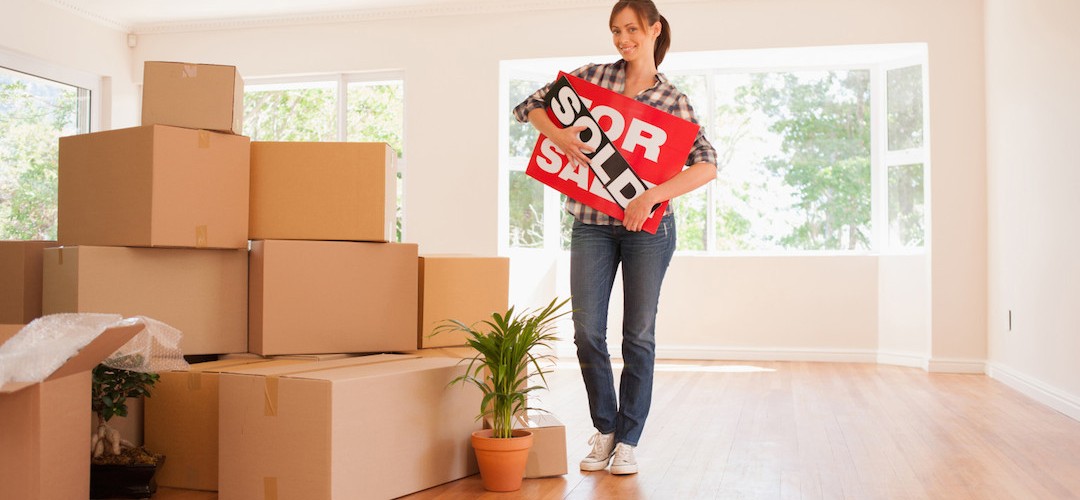Despite tightened lending conditions, single women are still outpacing their single male counterparts in buying homes.
In 2009, single females made up more than one-fifth of the marketplace and single males made up about one-tenth, according to the National Association of Realtors. In 2010, single women jumped to 26 percent of all home purchases in the Chicago area.
“In recent years, that has declined,” said Jessica Lautz, manager of member and consumer survey research at the National Association of Realtors. “I believe part of that is because of credit conditions in the country that we’ve seen in recent years.”
In 2013, single females made up 16 percent of home buyers, while the share of single male buyers fell to nine percent, according to the NAR Profile of Home Buyers and Sellers.
[soundcloud url=”https://api.soundcloud.com/tracks/161012561″ params=”color=00aabb&auto_play=false&hide_related=false&show_comments=true&show_user=true&show_reposts=false” width=”100%” height=”166″ show_playcount=”false” iframe=”true” /]
Still, single women are only second to married couples in terms of buying power, according to Lautz. “We’ve seen that they do have a very strong desire to own,” Lautz said.
Single women out buying single men in the home buyer’s market indicates a societal shift, according to psychotherapist Dickelle Fonda.
[soundcloud url=”https://api.soundcloud.com/tracks/161012563″ params=”color=00aabb&auto_play=false&hide_related=false&show_comments=true&show_user=true&show_reposts=false” width=”100%” height=”166″ show_playcount=”false” iframe=”true” /]
“Women have the resources now to do it and the banks don’t bat an eye at it,” said Fonda, who works largely with women and couples at her Evanston practice. “But I can tell you that in my mother’s generation, in my day, we would have never been able to sit down with a banker and have a serious conversation about buying a house. It was unheard of.”
Fonda said she works with many single women in their 20s who are buying homes.
[soundcloud url=”https://api.soundcloud.com/tracks/161012562″ params=”color=00aabb&auto_play=false&hide_related=false&show_comments=true&show_user=true&show_reposts=false” width=”100%” height=”166″ show_playcount=”false” iframe=”true” /]
“It’s so second nature for them to just think about not waiting until they have a partner, just how women aren’t necessarily waiting for a partner to have kids,” Fonda said. “I’ve seen many of them who are not yet married and didn’t have to give a whole lot of thought to the fact that, practically speaking, they just wanted to buy a property, they wanted a condo, or they wanted a house. They weren’t married, they weren’t attached to anybody yet. It was just, ‘I have the money and I’m going to do it. If I end up getting married to someone who also has property, we’ll just rent one of them.’”
Karl Vogel, a Chicago real estate agent for @properties, said many of his single female clients are looking to invest. Seventy-seven percent of single female buyers view their home as a good financial investment, according to the NAR profile.
“I think a lot of women are working now and making good money,” Vogel said. “They’re not get married when they’re 20 years old. They have professional careers and assets, and part of that is investing in real estate. They’re basically buying houses before they’re getting married.”
Vogel’s two most recent single female buyers were a pilot and a lawyer.
The first, a 43-year-old French citizen, “wanted to buy a place here because it would be a good investment and she didn’t have any other real estate,” Vogel said. “My other single female client was an attorney in Northlake, and she bought a house in Winnetka. She’s a lawyer and makes a ton of money. She just had to be closer to work because her commute was too far.”
Security is a concern that sets single female buyers apart from other buyers, Vogel said.
[soundcloud url=”https://api.soundcloud.com/tracks/161012559″ params=”color=00aabb&auto_play=false&hide_related=false&show_comments=true&show_user=true&show_reposts=false” width=”100%” height=”166″ show_playcount=”false” iframe=”true” /]
“Single women, I think, as a whole are more safety conscious than let’s say, single men or couples,” Vogel said. “If you know your boyfriend’s there, you don’t have to worry about people mugging you or breaking into your house. But if you’re a single woman, they usually want to be on a top floor if it’s a small building, or they want a building with a doorman or security.”
Single women are more willing to make sacrifices to buy a home. More females than males cut spending on luxury items, non-essential items, entertainment and clothes in order to purchase a home in 2013.
“We grow up making sacrifices that men don’t have to make,” Fonda said. “I think we’re used to it, so if it means we have to make sacrifices in order to have the money for a down payment on a house, then we know how to do that.”
The income disparity between single female and single male home buyers may also indicate something about their spending habits. The average income of a single female home buyer is $52,000, while the average single male’s is just over $66,000.
“Women are still making considerably less than men, and yet more women are able to buy property,” Fonda said. “That speaks to the fact that either they’re better managers of their money, or they’re willing to make sacrifices that men aren’t yet willing to make.”
“Women can now be this demographic that’s able to buy property by themselves, and have the mindset that you don’t need to be attached to a man to do that.”
